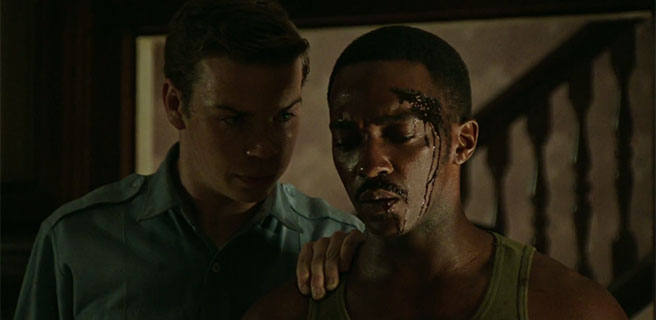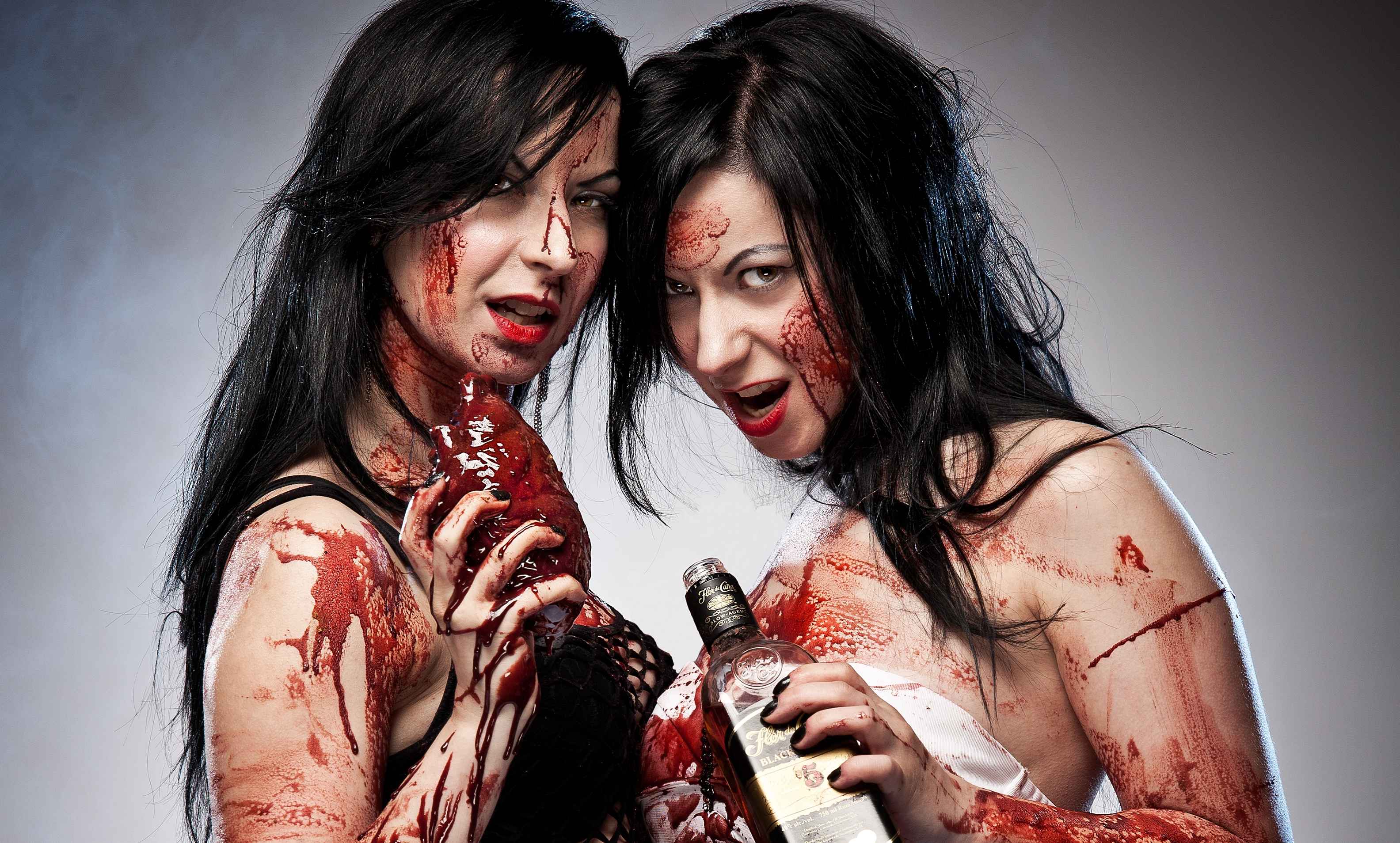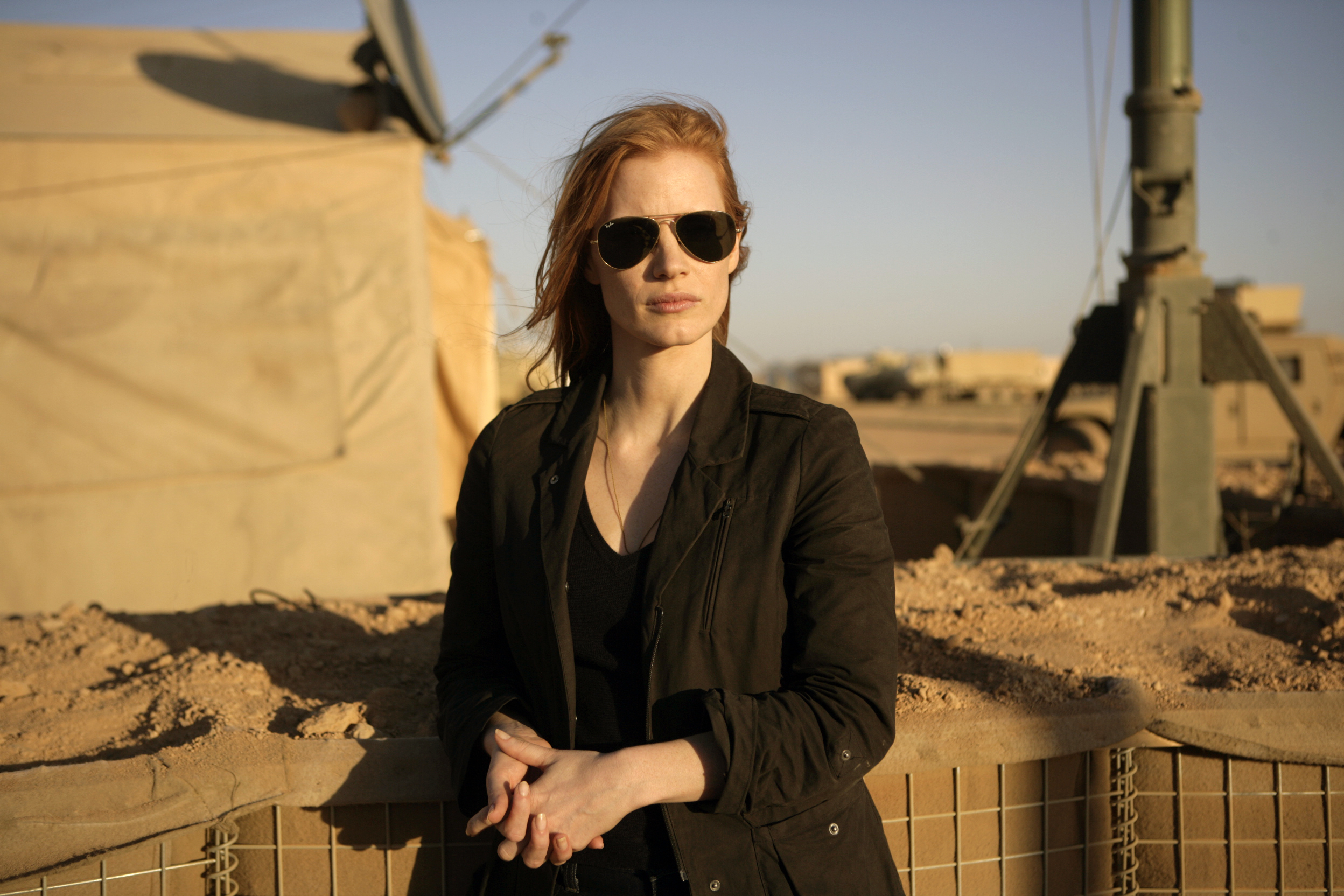Detroit
by George Wolf
Detroit burns with a flame of ugliness, rage and shame that simmers well before it burrows deep into you. It is brutal, uncomfortable, even nauseating. And it is necessary.
Director Kathryn Bigelow and writer Mark Boal, the Oscar-winning duo behind The Hurt Locker and Zero Dark Thirty, bring craft and commitment to the story of Detroit’s infamous Algiers Motel Incident.
In July of 1967, during days of rioting from civil unrest, a riot task force raided an annex of the Algiers amid reports of sniper fire coming from the building. After hours of beatings and interrogation, three young African American men were dead.
Bigelow and Boal wrap this tragedy in their meticulous brand of storytelling, and it bursts with an overdue urgency. Layering timelines, characters, and bits of archival footage, the filmmakers achieve the stellar verite effect that has become their calling card. We become part of these events through an authenticity that brings terror to you, takes the breath from you and quickens your pulse. In conveying atrocities now decades old, the film builds its lasting power from how it makes us confront our present while depicting our past.
John Boyega (Star Wars: The Force Awakens) carries the film’s soul with thoughtful nuance as Melvin Dismukes, the black security guard at the scene for assistance. In one of the film’s most quietly powerful scenes, the gravity of his situation begins to hit Dismukes, and he quietly trembles. It’s one of the many instances the film deepens its feeling by letting events speak for themselves.
Ironically, it is precisely the subtle and organic nature of Detroit’s truths that call attention to the few moments of heavy-handed overreach, more from surprise than their effect on the overall narrative.
With a chilling, award-worthy turn, Will Poulter (The Revenant) makes the sadistic Officer Krauss all the more terrifying for how casually his violence erupts. There is excellence throughout Bigelow’s ensemble cast, and from Anthony Mackie’s embodiment of African American veterans denied the very rights they fought for to Algee Smith (The New Edition Story) as an aspiring R&B singer whose life is forever altered, sharply defined characters are revealed regardless of screen time.
Concerns about the voyeuristic nature of running this brutality through a white filmmaker’s lens are legitimate, but Bigelow also delivers a level of sensitivity that is palpable and frankly surprising for a tale so inherently savage. The strive to get this right is felt in nearly every frame, down to the end title card explaining the need for dramatic license.
Intimate in scope but universal in reach, Detroit shows a shameful part of the American experience, one rooted in white power and black fear, that continues to be perpetuated.
It is not a pleasant film, but it is necessary.


